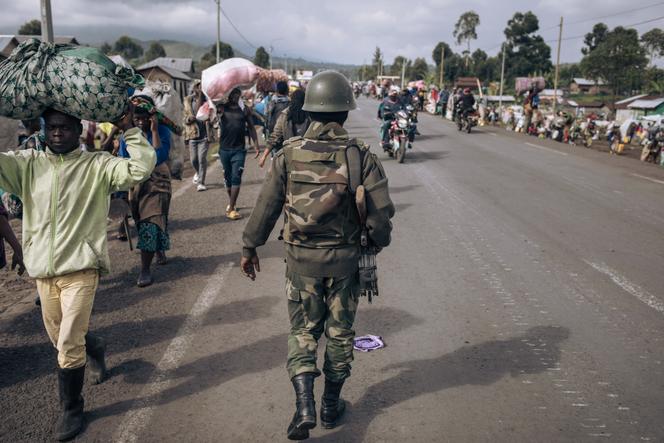


While the Armed Forces of the Democratic Republic of Congo (FARDC) is struggling with the new offensive by the March 23 Movement (M23) in the east, the government is considering lifting the moratorium on the death penalty for military personnel. The announcement was made by Deputy Prime Minister and Minister of National Defense Jean-Pierre Bemba, who explained that he had submitted this recommendation "when it comes to cases of treason within the FARDC" at a higher defense council chaired by President Félix Tshisekedi on February 5. Four days later, the matter was referred to the cabinet by Minister of Justice Rose Mutombo. It is now up to the head of state to decide.
The death penalty has not been implemented since 2003, but death sentences continue to be given. In 2022, 800 Congolese prisoners were sentenced to death, 163 of whom had been sentenced that year. As Bob Kabamba, an expert on Central Africa at the University of Liège, explained: "For the Congolese authorities, the very high level of insecurity in the east of the country has justified the continuation of this penalty to this day."
Although the moratorium has not yet been effectively lifted, the mere fact that it has been mentioned by the government is worrying human rights organizations. "This measure amounts to maintaining that in times of conflict, human rights have little value," lamented Clément Boursin, the head of Sub-Saharan Africa at the NGO Action by Christians for the Abolition of Torture (ACAT). According to Pierre Boisselet, director of research on violence at Ebuteli, a Congolese research institute, this is above all a message "addressed to the Congolese army." Within the military hierarchy, "there are suspicions that some officers are dealing with the enemy, or even issuing orders favorable to them," he continued.
One of the aims would be to warn soldiers against attitudes deemed unpatriotic, such as officers who retreat when the balance of power seems unfavorable. However, there is no guarantee that reinstating the death penalty will solve the problem in an ill-equipped, poorly trained army, with soldiers who sometimes struggle to receive their pay because corruption is so widespread. "Above all, there's a risk that this will degenerate into a settling of scores, further weakening the unity of the army," said Boisselet.
This debate is happening while Tshisekedi, who was re-elected in December with 73% of the vote, has not been able to keep the promise he made five years ago: to end the war in the east, which has been plagued by armed conflict for a quarter of a century. "Between 2018 and 2023, Félix Tshisekedi failed to obtain the results that were promised. The conflict, which largely predates him, has even worsened and spread," noted Kabamba.
Since February 7, renewed fighting by the M23, supported by neighboring Rwanda, according to UN experts, has highlighted the impasse in which the authorities have found themselves. The FARDC continues to retreat, despite the deployment of Burundian troops and the arrival of the first South African contingents as part of the Southern African Development Community Mission in the Democratic Republic of Congo (SAMIRDC), replacing East African troops, considered too passive by Kinshasa. Goma, the capital of North Kivu, is now under threat; the rebels have seized the city's southern, western and northern entrances.
"The government needs to be proactive and project its determination eastwards. Almost 60 days after the re-election of Félix Tshisekedi, the Congolese are still waiting for the appointment of a new government. It's not hard to imagine that Jean-Pierre Bemba is also positioning himself," said Boisselet. A former warlord, convicted of war crimes and crimes against humanity by the International Criminal Court (ICC) before being acquitted in 2018, Bemba became the president of the Movement for the Liberation of the Congo (Mouvement de Libération du Congo, or MLC), allied himself with Tshisekedi in 2020 and joined the government in 2023.
In recent days, the minister has been particularly active. After visiting Goma on February 9, he returned there on Tuesday to reassure residents. "The population should have nothing to worry about," he assured them, although the sounds of fighting around the nearby town of Saké could be heard from this regional capital. Faced with the length and number of victims of this conflict, the anger of the Congolese people is strong. In recent days, it has been directed at Westerners, who were the target of slogans in two demonstrations on Saturday and Monday, accusing them of siding with the "enemy." The challenge for the government is to ensure that this exasperation does not turn against it.
Translation of an original article published in French on lemonde.fr; the publisher may only be liable for the French version.
